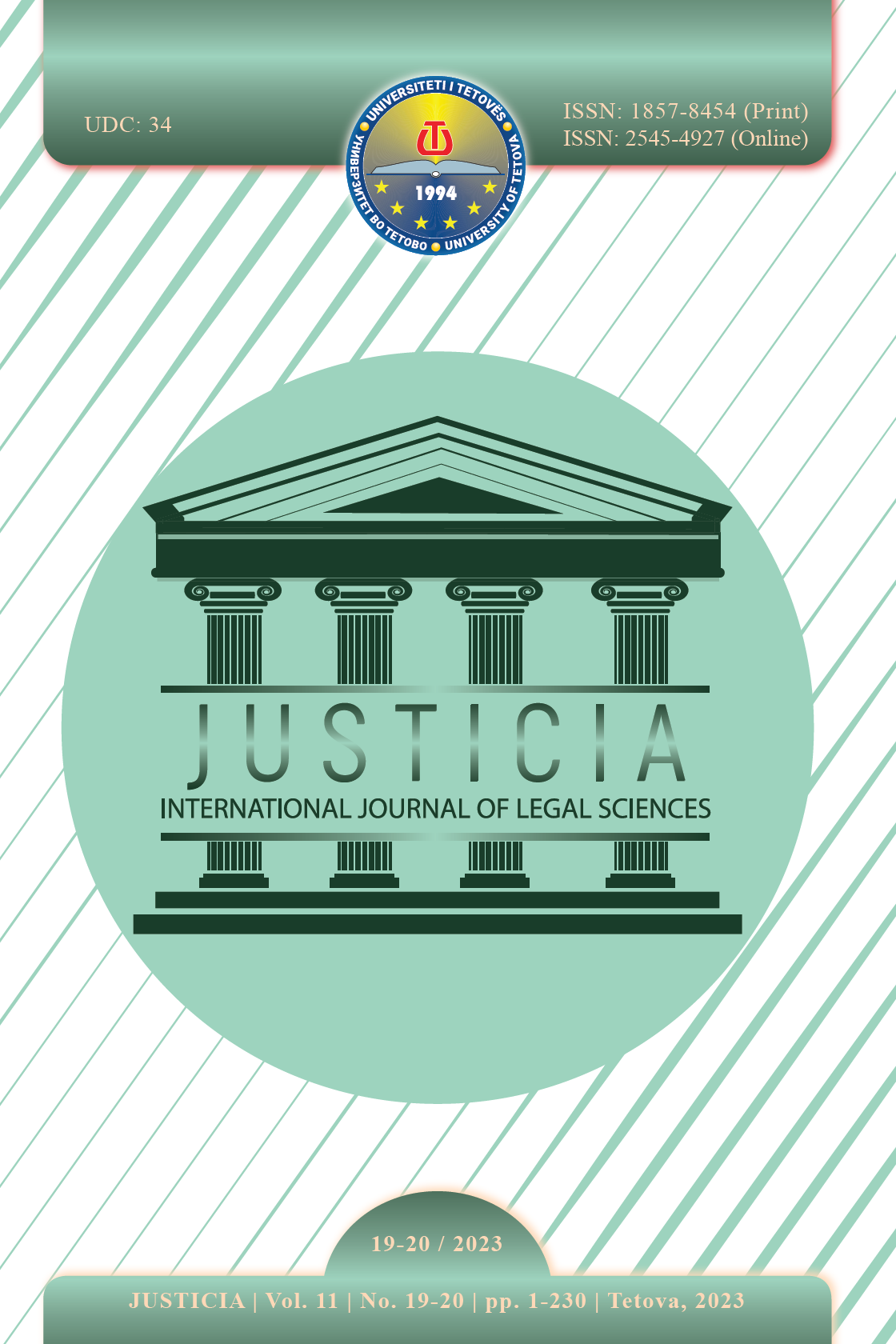
THE RIGHT TO SELF-DETERMINATION IN WESTERN BALKAN COUNTRIES
THE RIGHT TO SELF-DETERMINATION IN WESTERN BALKAN COUNTRIES
Keywords: self-determination; human rights; sovereignty; territorial integrity; Western Balkans
The right to self-determination is the collective right of a nation to freely determine its political status and freely pursue its economic, social and cultural development. This right has a central position in international law as a fundamental principle in the creation and destruction of states. In Article 1 of the Charter of the UN (1945) it is counted as one of the goals of the organization, and it was listed as the first right in both International Conventions in 1966 (ICCPR and ICESCR).Although it is a principle in evolution, whose origin is seen in the Declaration of Independence of the USA back in 1766, this right remains an important and current topic for the countries of the Western Balkans, especially after the breakup of Yugoslavia for the countries that made up this federation. The Prespa agreement between Macedonia and Greece, as well as the fragile relations between Kosovo and Serbia and the current border change negotiations, return the attention to the notion of the right to self-determination and its meaning today.This paper aims to analyze the evolution of this right in international law, to better understand the border/relationship between the right to self-determination and the sovereignty of states in a regional context for the countries of the Western Balkans.
More...